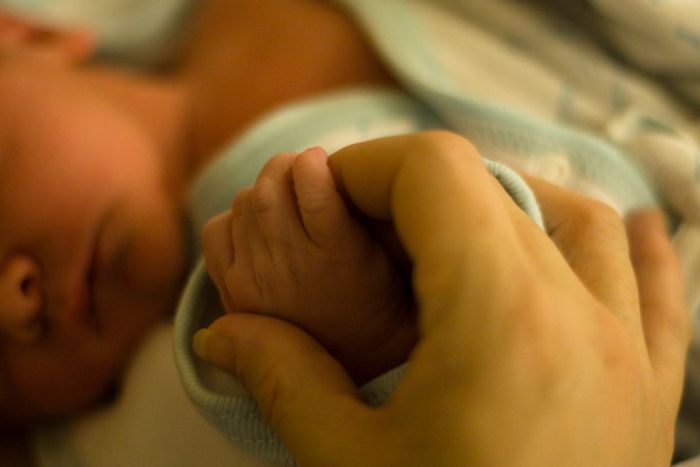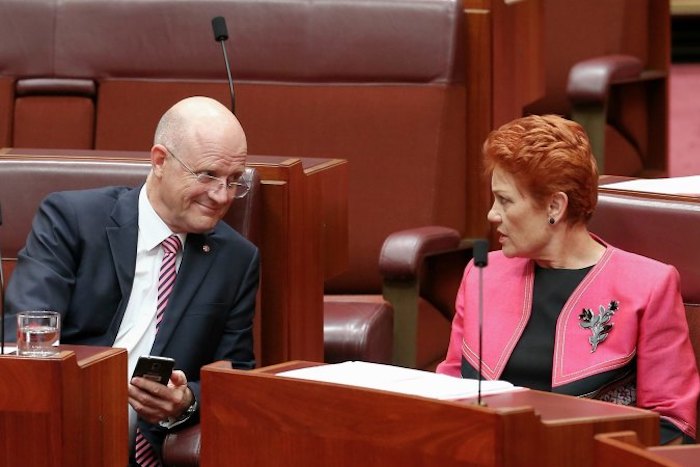My daughter is lucky to have the disability insurance scheme. But what happens if cost cutting leaves her without the care she needs?
So I’ve bitten the bullet. I made the decision to submit a quaintly named but ever so important “review of a reviewable decision” for my daughter’s NDIS plan. These are the reviews you request when the plan an NDIS participant has been granted is not good enough –basically, when the plan made doesn’t have enough funding to let her live the life she should, and could, have.
I always thought my adult daughter was kind of a poster girl for the NDIS. Exactly the sort of person I thought would be covered when Australia decided to start an insurance scheme for disability. She was 23 when she became disabled – one minute fine, studying a master’s degree, the next life-threateningly ill in hospital with a disease that was to leave her with an acquired brain injury.
That was five years ago. She has come a long way. But she still needs someone with her to keep her safe. Constantly. Who knew that there was a scale on which we measure the severity of brain injuries? Well, there is. The Care and Needs scale. On this scale my daughter is assessed as a 7. The highest category. People who need care 24/7.
And the NDIS has come to the party to ensure she gets care. She had the fortune to be born in a country that has this wonderful, thoughtful, generous insurance scheme to help people in her position. So she gets access to money that enables her to engage the support workers that she needs to support her to survive.
Support workers are kind of like angels on Earth. For inadequate wages they help people like my daughter live. The NDIS has invented a complex new language, so in their terms these support workers assist my daughter with “activities of daily living” (in other words they help her shower, toilet, dress) and with “social and community engagement” (leaving the house to go on bush walks, to the library, to shops).
Without these support workers, without the money for these support workers, her life would be basically crap.
So what’s the problem? The problem lies in that 24/7 bit. She needs care around the clock, and yet her funding doesn’t allow for that – it allows for roughly 10 hours a day. So what happens for the rest of the time?
That’s when the delicately named “informal supports” take over. And in my daughter’s case her mother, me, is the total of her informal supports. And I’m getting weary. It’s hard work finishing my paid work and then taking over somebody else’s job, day after day, year after year.
Of course she is my daughter. I should be expected to care for her for as long as I can. I know that. And of course I will. But it’s getting harder. She needs more hours of paid support workers. Or I do. Or we both do. At this point our needs have kind of merged.
But more hours cost more money. And the NDIS, or the politicians, or someone, wants to rein in the cost of this insurance plan. There was even talk of removing people with brain injuries from the NDIS altogether (they tend to be on the high cost end of participants), something the government has since ruled out.
I had to make that decision. Whether to request a review of her plan to try and get her the additional funds she needs or to just muddle along the best we can with what she has.
Why is this even a decision? Why wouldn’t I give it a go, given they can only say no? If only it was that simple. See, when you ask for a review, there is always the risk that you end up with less funds than you started with.
And that’s a big risk. My daughter’s plan is generous. She is lucky in that she has a (mostly) articulate mother who understands legislation and bureaucracy and can mostly understand NDIS processes – and can fight for what her daughter needs. But she needs every cent she has and more.
What happens if this time I wasn’t articulate enough? What happens if this time the review results in a funding cut? What happens to that gorgeous girl who trusts her mother to make the right decisions for her?
What happens if the NDIS fails her? What happens to her, and to me? What happens if we become further casualties of the bureaucratic and political minefield that the NDIS now is?
I love the NDIS with a passion, love that I live in a country that mostly cares about all of its people, even the ones with broken bodies and brains.
But I hate the fear. Hate the fear I have every day when I open the paper and read another story about cost cutting and the NDIS. The NDIS shouldn’t be in the news daily. It shouldn’t be a political, ideological play thing for politicians. It shouldn’t be this hard. I hate the fear that a wrong decision by me could leave us with less of the support we need. That sucks.
My daughter should always be able to trust me. And the NDIS.
First published in The Guardian, May 21st 2021.



